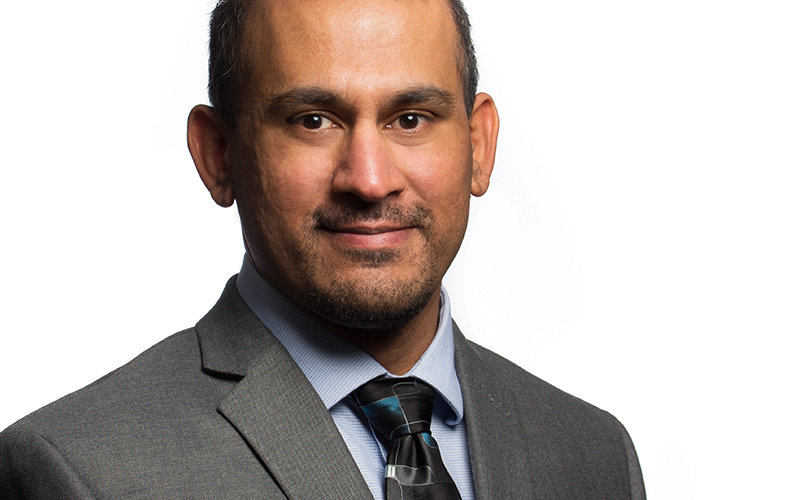
Chethan Srikant has more than 10 years of corporate experience, serving on three different continents as a software developer, IT consultant and marketing strategist. But he had always been interested in teaching.
It came to a point where teaching became “something I needed to do,” said Srikant, who earned his doctorate from Western University’s Ivey Business School in Canada. Srikant says of the decision, “It was a life, not career, choice.
“I sincerely believe I woke up happy every day during my Ph.D. studies. It was tough but it was definitely a place where I felt right.”
The assistant professor of management feels the same since entering the classroom at Cal State Fullerton. In one 7 p.m. class, “I expected the students to be sleepy but they weren’t. There was such energy coming from them.”
What are your research interests and why?
My focus is on the idea of social issues being integrated into corporate strategy. I don’t like to see a company make a decision separate from the issues of a community or society.
Take, for example, liquefied natural gas storage. It’s important to have terminals for the storage and importing of natural gas but if the community objects and a company doesn’t develop a strategy to connect and gain community support, many such projects don’t even get to the approval stage.
How do you engage students in your classes and/or research?
I use case-based teaching — lectures, presentations and exercises for the students to do. It’s a good experiential learning process. The aim is not to necessarily come up with THE solution but to go through the process.
I encourage students to give their best. I treat each student as an individual and I offer support. I look for the development in their perspective, where they see things differently. When that happens, it means that the students are thinking for themselves, and that gives me a lot of hope. I get excited when they feel confident enough to voice a different opinion, share a different perspective on an issue from how I’m thinking.
What changes do you envision in your field five years from now?
I hope to see more corporations focused on the areas I’m delving into when it comes to management strategies and response to social issues.
I would like to see terms such as social responsibility no longer considered ‘buzz words.’ They should be a normal way of doing business. Through strategy courses, I hope that our future business leaders recognize that.
What is one thing that you believe the general public needs to know about strategy in business?
People tend to think it is a formula, but it’s not. Strategy is more an art form than a science.